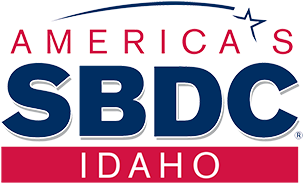Searching in Legal Issues [clear]
Legal Issues
How do I copyright a product?
A copyright is the exclusive legal right given to an originator or an assignee to print, publish, perform, film, or record literary, artistic, or musical material, and to authorize others to use their material. Copyrights are filed with the U.S. Copyright Office. Learn more about copyrighting and the process of getting your material protected by visiting their website.
How do I file a patent or trademark?
If you have a new technology or innovation that you're developing, we'll be glad to help you understand the patent process and refer you to a patent attorney if necessary. Be aware that scams abound in this area. A provisional patent application is NOT a patent application.
SBDC consultants can help with preliminary trademark searches related to naming your business or creating a unique logo. For details on registering a trademark see the FAQs section of our companion website, business.idaho.gov.
What legal aspects do I need to consider when starting my business?
Many different legal aspects must be considered when starting or growing a small business. These include: the business structure you choose (entity type), zoning, permits, taxes, registrations, worker’s compensation insurance if you have employees, patent and trademark registrations, leases, contracts, discrimination, and much more. The SBDC does not provide legal advice or services and strongly recommends you consult with an attorney.
How should I structure my business?
Your choice of business structure impacts taxes, liability and other areas of your business. The basic structures of business ownership are sole proprietorship, limited liability company (LLC), partnerships, c-corporations and sub chapter s-corporations. Among other considerations, selection of a business structure depends on the level of control you desire, the size and nature of the business and possible vulnerability to lawsuits. Read through the benefits and limitations of each structure type on the Legal Structure page of business.idaho.gov then consult with an attorney and an accountant to determine the structure that works for you.
How can I protect my assets?
Protecting your personal and business assets begins with the business structure you choose. Registering an LLC or corporation offers liability protection if you are careful not to co-mingle your business and personal finances. Your attorney should create the appropriate legal agreement to govern your business - Articles of Incorporation, an Operating Agreement or Partnership agreement. All need to conform to Idaho law, include details of how business finances will be handled and by whom and be regularly updated. Registering only an assumed business name, which creates a sole proprietorship, offers no legal protection and puts your personal assets at risk, as well as your business ones. Your SBDC consultant can suggest some safeguards to help protect your assets, beginning with good business practices. We are here to help clarify and define additional practices that will help reduce your risks.





